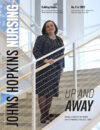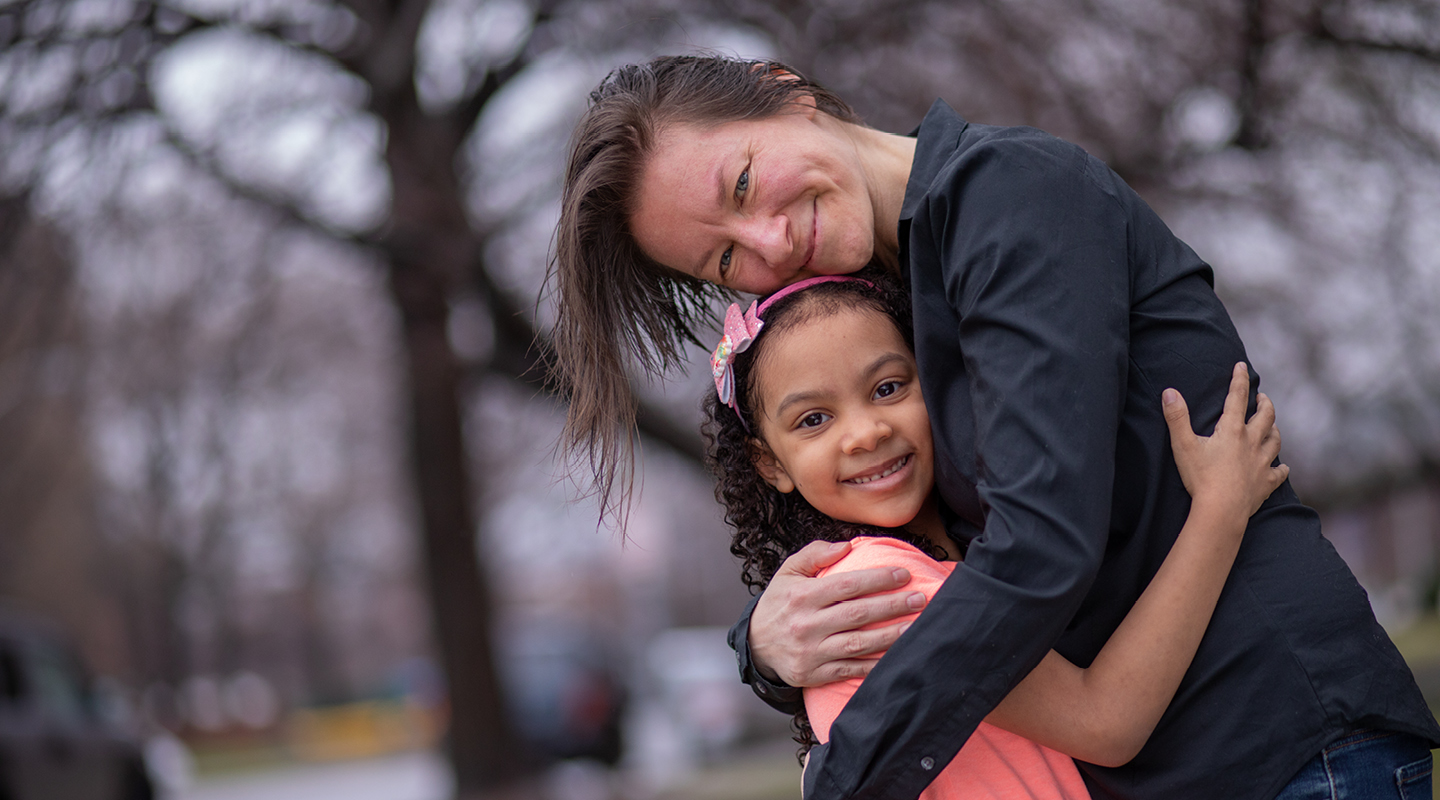Gurtler Scholar uses own good fortune to change that of at-risk communities
Written by Steve St. Angelo | Photo by Chris Hartlove
Cheryl Finell came by a passion for community health organically.
The MSN (Entry into Nursing) student and Gurtler Scholar had spent time volunteering at farms in several states—embracing natural healing—and also as a case worker in Massachusetts helping young parents earn a high school equivalency diploma (GED). Finell was doing and feeling great … and lousy. “You didn’t see this [good health] in the people I was working with.” Instead, “you see common health issues among very young people. It upsets you. It also makes you feel very lucky, and it sparked my interest in public health.”
Finell, privileged to have grown up in Manhattan and Westchester, NY, became even more determined to use that good luck to help lift less fortunate communities globally through public health, parent-child care, and an oversized dose of humility.
Thus began a journey for Finell, who uses they/their pronouns. First, to India, where public health and governmental organizations offered valuable lessons in helping those most at risk. Sensing an opportunity to lead and make an even bigger difference, they joined the Peace Corps. (The Gurtler Scholarship is awarded annually to a Returned Peace Corps Volunteer in the Master’s Program.)
If people don’t trust you, you can’t do anything…”
The Middle East beckoned as a first choice, but openings there were rare. Cameroon was available. So off Finell flew—from India to the U.S. for 10 days, then on to Africa. Finell spent two years near Hina (in a welcoming village “in the bush”—no electricity, spotty cell service—at the far north of Cameroon). “I was hoping for that extreme … as far away from everything I knew, pushed that far outside my comfort zone.” Finell set about getting to know the local people, understanding the need, earning trust, and listening. “If people don’t trust you, you can’t do anything,” Finell says. “What I thought wasn’t relevant.”
Each year, flood season cuts Hina off from the village Finell called home, 17 kilometers away. That community, which had always relied on Hina for health care, approached Finell about raising money to build its own health center. “I was conflicted because I worried about the sustainability of building a health clinic.” Finell uses the example of a good-intentioned visitor building a well and then leaving. The well breaks, and both it and the humanitarian gesture become empty. “But I also felt my role was to facilitate projects according to what the community expressed it needed. So, after doing many other projects and building relationships that would help get the clinic integrated into the government health care system”—and witnessing the monsoon’s impact firsthand—“that’s when I really dove into that project.”
Insuring sustainability meant local weigh-in and buy-in. So Finell went to work, and the health center remains a proud accomplishment.
Finell added a third year of Peace Corps service to do public health work in the nation’s capital, Yaounde, realizing over time that a nursing degree would mean being an even bigger help there, or anywhere. Colleagues realized it too. “They said, ‘OK, go get your nursing education and come back and work for us.’” Finell loves the idea. But today, as the single parent of a healthy 6-year-old named Maya, the reality is a bit trickier, at least for now. “I’m thinking and doing research,” Finell explains of worries such as malaria or other ills that might challenge a child’s immune system.
Meantime, the Johns Hopkins School of Nursing is happy to have Finell in the family, and help in the journey, wherever it goes next.
“I see myself almost as a tool,” explains Finell, a doula since 2016 who hopes to become a nurse-midwife and continue to practice globally. “If women and children are taken care of, the health of everyone is increased. It improves the development index of entire countries.”
“I want to leverage my privilege to be of the most service.”

